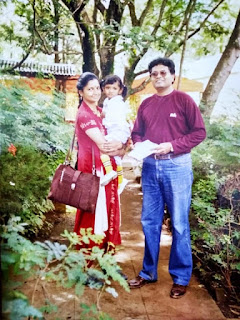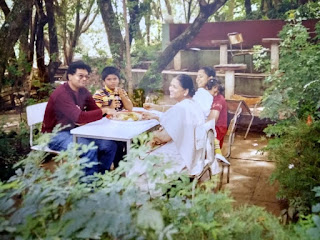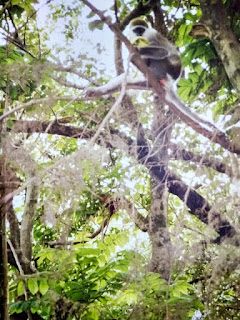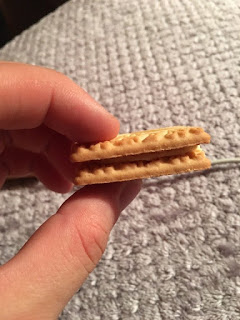The first blog post on Ethiopia was on 10th October
2017 and the 100th blog post is being posted on 31st of March 2019.
The journey to write 100 blog posts has taken me 535 days. Including this post
I have written 95,000 words. I average 950 words per post.
Along the way I have picked up a small army of loyal readers who
follow my blogs with religious zeal. They read and give constructive feedback.
Most of my loyal readers have remained with me in this 1.5 years’ journey of my
blog. Throughout the world nearly 20,000 people have read my postings and that,
in my view is a ringing endorsement of my humble effort.
The Indian community in Bahirdar is minuscule and it can be safely
be said that anything, I repeat anything becomes NEWS. The tit-bit of news has to be flogged and flogged till the
last drop is taken out of the juicy gossip.
Anasuya Aunty’s (Padma’s mother) visit to Ethiopia triggered the
wanderlust in our family. We wanted to travel and see the important tourist destinations
of Ethiopia. Being prudent, we wanted to maximize on the destinations and
wanted our travel to be budget friendly and the duration to be short.
Travelling on the dusty metal roads of Ethiopia (in 2003) took a heavy toll on
the human endurance and the dusty roads could lead to severe cough and other
throat related problems.
Google search threw up some very interesting facts. Ethiopia has
nine world heritage sites. A World Heritage Site is a landmark or area which is selected by the United Nations Educational, Scientific and Cultural Organization (UNESCO) as having cultural, historical, scientific or other form of significance, and is legally protected by international treaties.
The sites are judged important to the collective interests of humanity. Most tourists would be over the moon to visit even one or two world heritage sites in their visit. The nine world heritage sites of Ethiopia are given below. The year in the brackets indicate the year in which UNESCO officially granted the place the status of a world heritage site.
The sites are judged important to the collective interests of humanity. Most tourists would be over the moon to visit even one or two world heritage sites in their visit. The nine world heritage sites of Ethiopia are given below. The year in the brackets indicate the year in which UNESCO officially granted the place the status of a world heritage site.
Rock Hewn Churches Lalibela (1978): The site contains 12 medieval rock hewn churches from the 13th century. They are touted as the 8th wonder of the world. The churches are cut out of sheer rock and in many cases it’s still a puzzle where the rock debris have been deposited.
There are no man made mounds or small mountains which would have been formed due to deposition of the debris. It is said that gods themselves have built these beautiful churches. A visit to the Lalibela churches is on the top most on the bucket list of all the devout orthodox Christians of Ethiopia. Lalibela is 310 kilometres away from Bahirdar.
There are no man made mounds or small mountains which would have been formed due to deposition of the debris. It is said that gods themselves have built these beautiful churches. A visit to the Lalibela churches is on the top most on the bucket list of all the devout orthodox Christians of Ethiopia. Lalibela is 310 kilometres away from Bahirdar.
Fasil Ghebbi, Gondar region (1979): The fortress of Fasil Ghebbi was the residence of Ethiopian emperors during the 16th and 17th century. The city remains, which features buildings with Hindu and Arab influences, were later remodeled with Baroque style architecture by Jesuit missionaries.
Bahirdar was situated on one side of Lake Tana whereas Gondar is situated on the other side. Gondar was one of the most well developed cities in Ethiopia and had a Government Medical College. Gondar boasted of the second largest expatriate Indian population after, Addis Ababa. It is 175 kilometres away from Bahirdar.
Bahirdar was situated on one side of Lake Tana whereas Gondar is situated on the other side. Gondar was one of the most well developed cities in Ethiopia and had a Government Medical College. Gondar boasted of the second largest expatriate Indian population after, Addis Ababa. It is 175 kilometres away from Bahirdar.
Simien National Park (1978): The eroded Ethiopian plateau comprises of jagged mountain peaks, deep valleys and sharp precipices dropping about 1500 metres (4900 feet). Simien National park nestling in the Simien mountains present some of the most spectacular views in entire Ethiopia. Simien mountains boast of the highest point in Ethiopia, Ras Dashen standing tall at 4550 meters above sea level. The jagged mountain peaks are so awe inspiring that they are christened ‘the chess set of the Gods’. Lalibela is 315 kilometres away from Bahirdar.
Tiya (1980): The archaeological site contains 36 monuments which includes 32 carved stelae covered with symbols hard to decrypt. Tiya is an archaeological site in central Ethiopia. It is located in the Gurage Zone of the Souhern Nations, Nationalities and peoples, south of Addis Ababa and is 570 kilometres away from Bahirdar.
Aksum (1980): The ruins of the city of Aksum, near Mekele, Northern Ethiopia, dates from the 1st to 13th century and marks the heart of the ancient Ethiopia and what was termed as the most powerful state between Eastern Roman empire and Persia.
Aksum has monolithic obelisks, giant Stelae, royal tombs and ruins of former castles. The Church of Our Lady Mary of Zion, Aksum is supposed to be the resting place of the Auk of the covenant which originally held the ten commandments that all Christians consider very holy. Aksum is 525 kilometres away from Bahirdar.
Aksum has monolithic obelisks, giant Stelae, royal tombs and ruins of former castles. The Church of Our Lady Mary of Zion, Aksum is supposed to be the resting place of the Auk of the covenant which originally held the ten commandments that all Christians consider very holy. Aksum is 525 kilometres away from Bahirdar.
Lower Valley of Awash (1980): Paleontological findings from lower Valley of Awash gave the world, Lucy. Lucy, the 3.2-million-year old female fossil is the evidence of the oldest living human being. Lucy in that sense is our mother and all the citizens of the world are her children. Lower Valley of Awash is 380 Km away from Bahirdar, in the west of Afar depression.
Lower Valley of Omo (1980): The prehistoric site near lake Turkana is the location of many hominid fossil findings, such as Homo Gracilis. Also found are tools made from quartzite, the oldest of which dates back to 2.4 million years old. Lower Valley of Omo is 554 kilometres away from Bahirdar.
Hara Jugol, the fortified historic town (2006): The city of Harar is on a plateau and is surrounded by gorges and Savannah. It contains 82 mosques, 102 shrines and unique interior design in the townhouses. Harar is said to be the fourth holiest city of Islam. The colorful walled city of Harar also boasts of another world famous personality, The Hynea feeding man. The Hynea man feeds hyenas from his mouth. Harar is 1100 kilometres from Bahirdar and is near Dire Dawa one of the most popular cites of Ethiopia.
Konso Cultural Landscape (2011): The site features 55 Kms (34 miles) of stone walled and fortified settlements in the Konso highlands of Ethiopia. The Konso, a Cushitic speaking people of southwest Ethiopia, are known for their distinctive religious and cultural traditions including their unique funerary rituals involving elaborate music and dance. Konso culture is also famous for its carved wood statues called wagas, which memorialize important people in the community. Konso Cultural landscape is situated 1000 kilometres from Bahirdar.
Apart from the above, there are many other sites waiting UNESCOs nod to be world heritage sites. Even though not on the list the Island monasteries of Lake Tana and the Danakil Depression in Afar region are places that should have automatically be featured on the list.
Apart from the above, there are many other sites waiting UNESCOs nod to be world heritage sites. Even though not on the list the Island monasteries of Lake Tana and the Danakil Depression in Afar region are places that should have automatically be featured on the list.
The islands of lake Tana have some of the most original churches/monasteries in the world and are home to antique Christian paintings, books, and artefacts. They are not museums. They are living churches where faithfuls worship god on a daily basis. Their inhospitable locations have meant that they have been insular to change and have the look and feel of churches of the 10th and 11th century. Visiting them is like being transported back in a time machine. A visit to the paradise lost!
The Danakil Depression is a plain, 200 by 50 km (124 by 31 mi), lying in the north of the Afar region of Ethiopia, near Eritrea. It is about 125 m (410 ft.) below sea level.
The Danakil Depression is the hottest place on Earth in terms of year-round average temperatures. It is also one of the lowest places on the planet (100 m below sea level), and is without rain for most of the year. Visiting the hottest place in the world could be an exciting thing in itself. Danakil is also home to two active volcanoes.
With so many world heritage sites all around us, we were in a quandary. Spoilt for choice!!! We did not know which ones to pick.
The Danakil Depression is the hottest place on Earth in terms of year-round average temperatures. It is also one of the lowest places on the planet (100 m below sea level), and is without rain for most of the year. Visiting the hottest place in the world could be an exciting thing in itself. Danakil is also home to two active volcanoes.
With so many world heritage sites all around us, we were in a quandary. Spoilt for choice!!! We did not know which ones to pick.
























